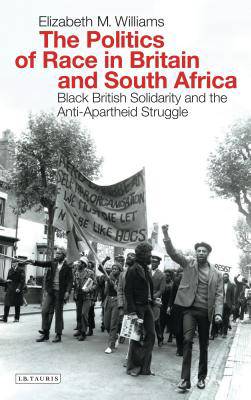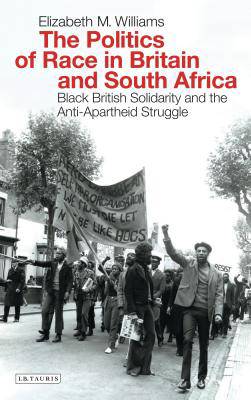
Je cadeautjes zeker op tijd in huis hebben voor de feestdagen? Kom langs in onze winkels en vind het perfecte geschenk!
- Afhalen na 1 uur in een winkel met voorraad
- Gratis thuislevering in België vanaf € 30
- Ruim aanbod met 7 miljoen producten
Je cadeautjes zeker op tijd in huis hebben voor de feestdagen? Kom langs in onze winkels en vind het perfecte geschenk!
- Afhalen na 1 uur in een winkel met voorraad
- Gratis thuislevering in België vanaf € 30
- Ruim aanbod met 7 miljoen producten
Zoeken
The Politics of Race in Britain and South Africa Black British Solidarity and the Anti-Apartheid Struggle
Black British Solidarity and the Anti-Apartheid Struggle
Elizabeth Williams
€ 84,95
+ 169 punten
Omschrijving
The postwar government of South Africa, led by H.F. Verwoerd, implemented wide-ranging racial segregation laws, beginning the open policy of apartheid in one of Africa's most prosperous and internationally influential states. During the apartheid era, the British government faced an uneasy dilemma: while repudiating apartheid laws it maintained an ambiguous stance towards the South African government. As black South Africans were reduced to the status of non-citizens after the 1970 Citizenship Act, increasing numbers of exiles and fugitives were finding refuge in Britain, which was now home to a growing anti-apartheid protest movement. This is the first book to examine the British support for the anti-apartheid movement among its own black communities. Elizabeth Williams highlights the connection between domestic anti-racism struggles and the struggle in South Africa, showing how black Britons who were themselves fighting racism in British society identified and expressed solidarity with black South Africans during the Apartheid years.
Williams further assesses the way in which Black communities in Britain viewed Margaret Thatcher's support of South Africa despite the international call for sanctions. Featuring the work of acclaimed documentary photographer and civil rights activist Vanley Burke, this will be an essential book for students and scholars of race, British history, international relations, post-colonial studies and South African history.
Williams further assesses the way in which Black communities in Britain viewed Margaret Thatcher's support of South Africa despite the international call for sanctions. Featuring the work of acclaimed documentary photographer and civil rights activist Vanley Burke, this will be an essential book for students and scholars of race, British history, international relations, post-colonial studies and South African history.
Specificaties
Betrokkenen
- Auteur(s):
- Uitgeverij:
Inhoud
- Aantal bladzijden:
- 336
- Taal:
- Engels
- Reeks:
Eigenschappen
- Productcode (EAN):
- 9781784539740
- Verschijningsdatum:
- 15/06/2018
- Uitvoering:
- Paperback
- Formaat:
- Trade paperback (VS)
- Afmetingen:
- 140 mm x 216 mm
- Gewicht:
- 390 g

Alleen bij Standaard Boekhandel
+ 169 punten op je klantenkaart van Standaard Boekhandel
Beoordelingen
We publiceren alleen reviews die voldoen aan de voorwaarden voor reviews. Bekijk onze voorwaarden voor reviews.









